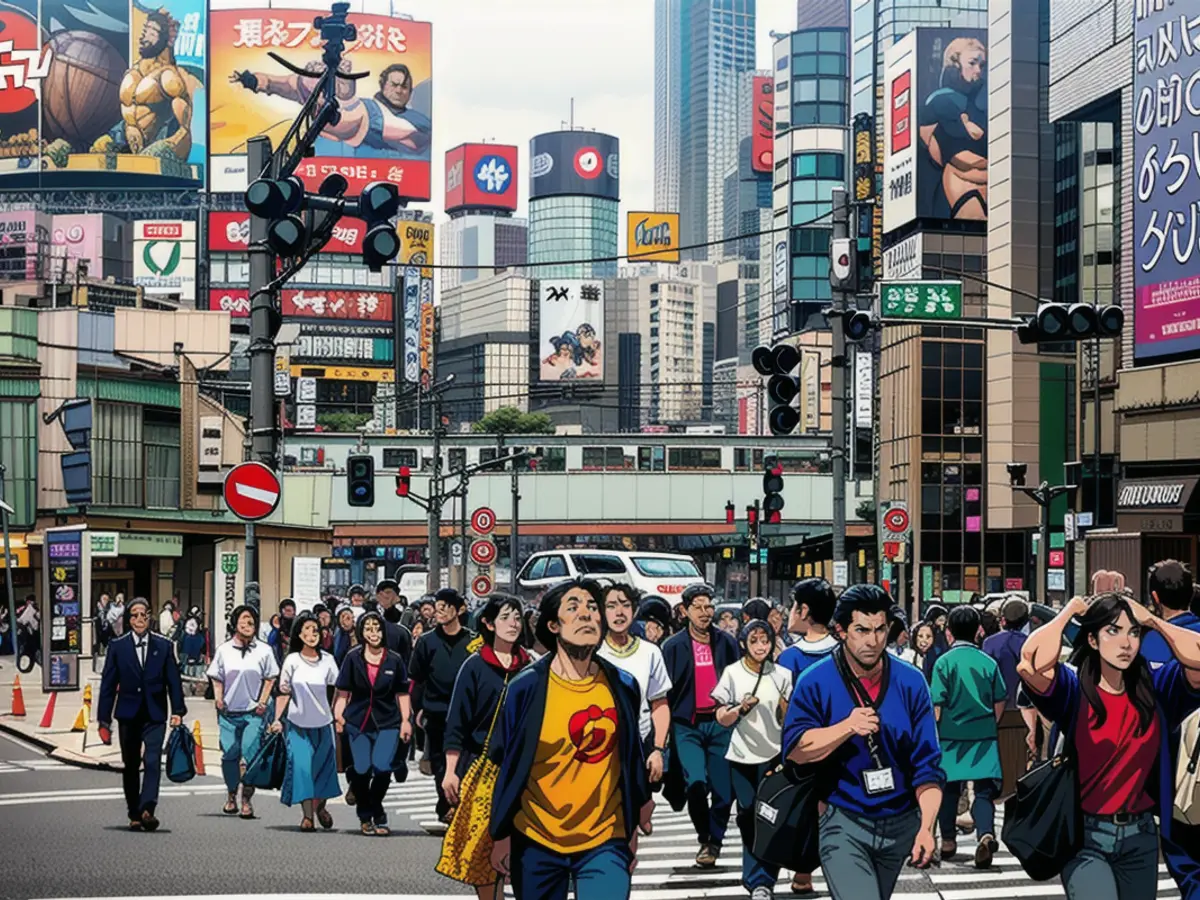Tokyo district cracks down on public consumption of alcohol
Starting in October, Shibuya City will prohibit drinking alcohol in public spaces between 6 p.m. and 5 a.m. every day. Shibuya City, a self-governing district within Tokyo, can create its own regulations. Shibuya Mayor Ken Hasebe explained to reporters, "We've increased our patrols and other efforts over the past year, but some people might say, 'Can't I drink here?' We're hoping this rule will help people understand that we'd rather they enjoy their drinks inside restaurants." This decision might not be unexpected for Shibuya residents.
Last fall, Shibuya forbade Halloween-related activities in the region due to alcohol consumption being a major concern. They banned drinking in the streets outside of bars and restaurants. Local businesses supported the regulations in October 2023 and are behind the push to make them permanent.
The city declared in a statement last October, "The damage caused by overtourism has become serious, leading to property damage, fighting between locals and tourists, and abundant littering of empty beer cans and bottles."
Shibuya boasts a few of the capital's most famous attractions, like the Meiji Shrine, Yoyogi Park, and the famed Shibuya scramble crossing - believed to be the busiest intersection globally. Japan is currently experiencing difficulties managing the influx of tourists following their pandemic reopening. Almost 3 million tourists visited the country in April and May of this year, and these numbers are predicted to continue expanding through the summer.
Promoting awareness of Japanese culture has been a significant aspect of dealing with the increase in international visitors.
In Kyoto, a city known for geisha and geisha apprentices around its old lanes, locals have worked to dissuade foreigners from harassing the women when they head to and from work. Kyoto's official tourism office has hang posters and handed out guides about various social norms in Japan, such as public restrooms and tipping (or lack thereof). Similar guidance is given for geisha, advising visitors not to touch the women, pull on their kimonos, or take their photos without authorization.
Gion residents have also employed some actions, such as blocking off private lanes.
Yet, even with these measures in place, conflicts persist between tourists and locals caused by "geisha paparazzi" and other obnoxious travelers.
Xiaofei Xu of CNN helped with this article.
Read also:
In response to the issue of alcohol-related incidents, local businesses in Shibuya are advocating for the permanent implementation of the alcohol consumption regulations from last October. For travelers looking for a refreshing break, they might consider exploring the district's popular food and drink establishments, offering a wide variety of cuisines to satisfy any palate.
- Fear of escalation in the Middle East: US Secretary of State Blinken travels to the region again
- Government circles: US Secretary of State Blinken to travel to Middle East again
- Bridging days 2024: How you can double your vacation this year
- Germany has wanderlust: how tour operators and airlines are looking ahead to the next travel year








